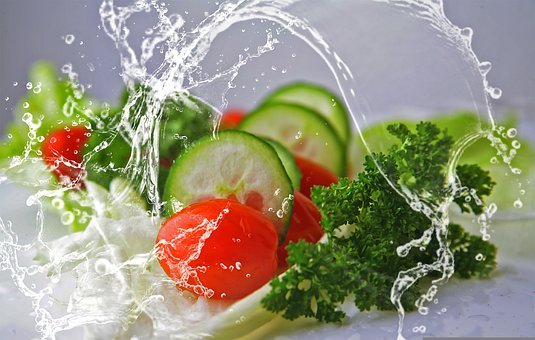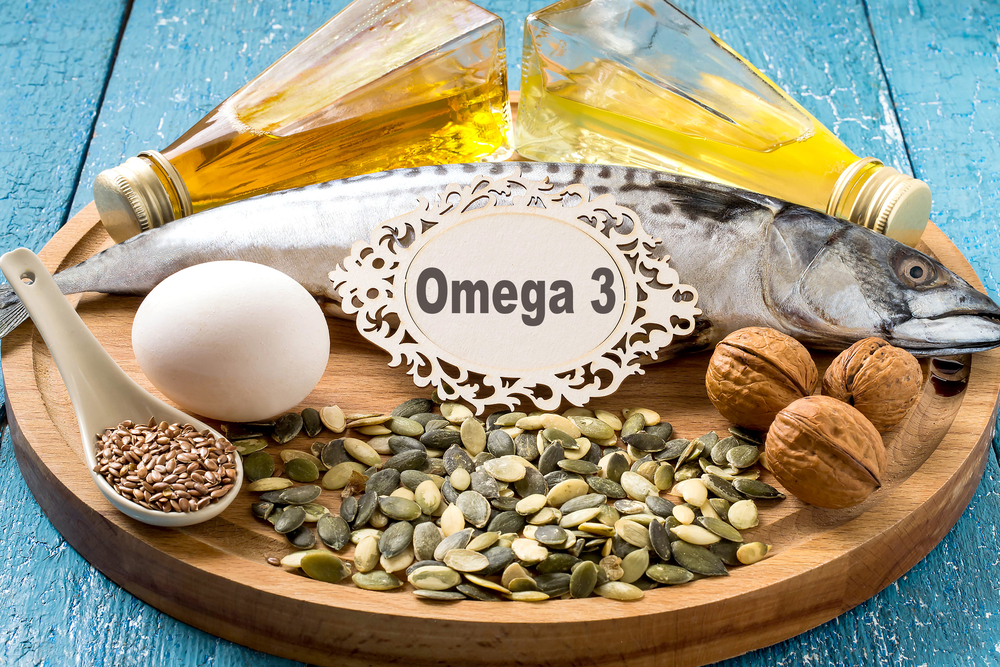Surgery can be hard on the body. After surgery, you or a loved one may experience a higher risk of infection, falls, pneumonia, or decreased mobility. The purpose of surgery is to improve your quality of life. The foods and beverages you consume can either help or hinder your recovery, depending on what they are.
There are many foods that can help reduce inflammation, improve immune function, promote healing, and provide the fuel necessary for you to recover.
There are a few things you can do to have a smooth transition from the hospital to your home. One of the most important things to focus on while healing from surgery is nutrition.
Here are the top healing foods for your body. Eating these foods will help improve your body’s ability to fight off infection, heal more quickly, and give you more energy. These foods will also help keep your body’s nutrient stores up. And they’re delicious.
1. Leafy Green Vegetables
Selecting leafy green vegetables like kale, spinach, arugula, mustard greens, and Swiss chard is a smart way to decrease inflammation, enhance immune function, and improve wound healing.
Leafy greens contain high amounts of essential vitamins and minerals for maintaining immune function and good health, including vitamin C, manganese, magnesium, folate, and provitamin A. These foods are also rich in polyphenol antioxidants, which have anti-inflammatory and immune-supportive properties.
Polyphenols in green leafy vegetables may help suppress the production of inflammatory proteins like TNF-alpha.
Leafy greens are good to eat when you are recovering from surgery because they contain vitamin C which is important for wound healing. You will find vitamins and minerals in vegetables that are some of the most important nutrients for your healing diet.
Eat these vegetables as a snack or part of a meal:
- Carrots
- Sweet bell peppers
- Broccoli
- Cauliflower
- Cabbage
- Brussel sprouts
- Sweet potatoes
- Potatoes
You can help fight post-surgery fatigue by adding these vegetables to your daily diet. The carbohydrates in them will give you more energy.
Your body will also benefit from an increase in vitamin A and C levels. A diet high in vegetables can also help reduce constipation, which is a common side effect of pain medication and decreased mobility.
2. Eggs
Your body needs significantly more protein following surgery than the current Recommended Daily Allowance (RDA) of 0.36 grams per pound (0.8 grams per kg) of body weight.
The recommended amount of protein to consume after surgery, according to the American Society for Enhanced Recovery, is 0.7 to 0.9 grams per pound (1.5 to 2 grams per kg) of body weight. That equals 105–135 grams for a 150-pound (68-kg) person.
Eggs are a great source of protein, with 6 grams in each large egg (50 grams). They also contain nutrients that support immune health and wound healing. Whole eggs contain vitamins A and B12, as well as zinc, iron, and selenium, which are all important for a healthy immune system.
3. Salmon
Salmon provides a good source of protein, B vitamins, selenium, iron, zinc, and omega-3 fatty acids. Research suggests that omega-3 fats found in fish oil supplements may have some positive effects on wound healing, immunity, and inflammation.
Additionally, wild-caught salmon provides more than 70% of the daily selenium needs, a mineral which regulates inflammation and immunity response.
Before taking fish oil supplements, you should speak to your healthcare provider, as it is probably safe to eat salmon, but this may vary depending on the surgery. According to recent research, there is no increased bleeding risk associated with fish oil supplements. However, some surgeons still advise against taking them.
4. Berries
Berries are high in nutrients and plant compounds that can help your body heal. For example, berries are packed with vitamin C, which helps wounds heal by increasing collagen production.
In addition to providing anti-inflammatory, antiviral, and immune-supporting effects, berries are also packed with antioxidants like anthocyanins. These plant pigments give berries their vibrant color.
Antioxidants are a great source of nutrition that help the body recover from damage.
Fruits with antioxidants include:
- Grapes
- Pomegranates
- Blueberries
- Raspberries
- Strawberries
- Goji berries
- Blackberries
Berries are also an excellent source of vitamin C. According to research, vitamin C is effective in repairing collagen and soft tissue, which will result in a faster healing process for incision sites.
Nuts and seeds are a good way to give your body energy during the recovery process. The following foods are rich in nutrients that are beneficial for healing. They include plant-based protein, healthy fats, and vitamins and minerals.
For example, zinc, vitamin E, manganese, and magnesium can be found in nuts and seeds. Vitamin E helps to protect your cells from damage by acting as an antioxidant. It’s also critical for immune health.
Vitamin E has been shown to improve the function of protective immune cells, such as natural killer cells, which help fight infection and disease.
6. Poultry
Amino acids are important for wound healing and immune function. Poultry contains high levels of glutamine and arginine, two amino acids which are beneficial for recovery and healing.
Glutamine helps protect cells during periods of stress, like when you’re sick or injured.
Arginine helps your body make collagen, which is important for healing wounds. Arginine is an important amino acid that is quickly used up during times of stress, injury, and illness. This makes it even more important to have enough arginine in your diet.
7. Organ Meats and other Alternatives
Organ meats offer a wide range of nutrients that are essential to our health, making them some of the most nutritious foods we can consume. They have a lot of nutrients that help the immune system, like vitamin A, iron, zinc, B vitamins, and copper. Copper is necessary for the production of connective tissue and collagen.
Getting enough protein is important as we age. Our bodies need a lot of protein and iron to help repair muscles that might have been injured during surgery.
The amino acids in protein help with muscle damage by regenerating tissue and speeding up wound healing. If you’re feeling tired, iron can help you increase your energy levels. This is because iron helps your body create new blood cells.
You may find it difficult to digest or chew tough meats after surgery. Consider trying meats that have been slow-cooked in sauces or ground meats.
8. Cruciferous Vegetables
Vegetables such as cauliflower, broccoli, Brussels sprouts, and kale that are in the mustard family are known to have many health benefits. The vitamins, minerals, and antioxidants found in foods like cauliflower may help improve recovery time.
There are compounds in cruciferous vegetables called glucosinolates, which your body converts into isothiocyanates. Isothiocyanates have been shown to improve immune health by reducing inflammation, activating immune defenses, and causing infected cells to die.
Not only do these veggies provide your body with the nutrients it needs during recovery, but they also contain vitamins C and B.
In addition to the vitamins A, C, and E, you will also be consuming the B-complex vitamins. These B-vitamins will help improve your energy levels. Don’t forget fiber, iron, magnesium, potassium and calcium.
9. Shellfish
Zinc is crucial for healthy immune function. Shellfish are good for recovery and wound healing because of their mineral content. Just 6 medium oysters contains enough zinc to provide over 300% of the Daily Value.
10. Sweet Potatoes
It is important to eat healthy high carb foods, such as sweet potatoes, for recovery. Carbohydrates are not only necessary for the energy your cells need in order to heal, but also for enzymes like hexokinase and citrate synthase that assist with wound repair.
Not getting enough carbohydrates can make it harder for wounds to heal and make it take longer to recover from an injury.
Sweet potatoes are an excellent source of nutrients that can help reduce inflammation, improve immunity, and speed up recovery. These include vitamin C, carotenoids, and manganese.
11. Fats (Nuts, Oils, Fish)
Remember, healthy fat is your friend. Especially after surgery, it is healthy to have fat in order to absorb all of the vitamins from fruits and vegetables. Fat is necessary for boosting your immune system and reducing your risk of infection.
Healthy fats to include:
- Olive oil
- Avocados
- Coconut oil
- Nuts
- Seeds
Fats provide you with a long-lasting source of energy. Many fats and nuts are high in vitamin E, with almonds being a particularly good source. Vitamin E has the ability to help wounds heal faster and also reduce the visibility of scars.
12. Probiotics
Essentially, probiotics are good bacteria that help keep your gut healthy. They can improve your digestion, provide mental balance, and help you fight off infections after a hospital stay or procedure. Some of the most common forms of probiotic-rich foods are:
- Yogurt
- Kefir
- Sauerkraut
- Kimchi
Surgery can be rough on your system. Anesthetics, antibiotics and painkillers can disrupt the delicate balance in your gut, causing digestive upsets, constipation and nausea. Probiotics can help to regulate your digestive system.
13. Brightly Colored Fruits
Who says that healing foods are boring? Eating a variety of foods from all the different color groups is especially important after surgery.
“Pile a bowl full of the brightest colored fruits and veggies” means to fill a bowl with brightly colored fruits and vegetables. The brightly colored fruits and vegetables are a good source of vitamin A, C, carbohydrates, fiber, antioxidants, and nutritious calories.
Fiber is important after surgery to help avoid constipation. Fruits contain fiber, vitamins, and carbohydrates that can boost energy levels.
Ask your friends to bring by:
- Oranges
- Apples
- Berries
- Melon
- Apricots
- Peaches
- Grapefruit
- Mango
- Papaya
- Tomatoes
Fruits are not only a good source of healing nutrition, but they are also easy to digest and ideal for small, regular meals.
14. Whole Grains
Carbohydrates are essential for brain function and energy, and whole grains are a great source of carbs. Eating whole grains after surgery will help ensure your body has the resources it needs to heal and recover. Whole grains also give you another dose of fiber.
After your surgery, you might feel tired and worn out. The right kind of carbs can help boost your energy levels.
Round your plate out with:
- Whole wheat or rye sourdough bread
- Steel-cut oats
- Quinoa
- Wild rice
The majority of your vitamins and minerals should come from eating healthy fats, vegetables, fruit, and proteins. Carbohydrates are important for healing.
15. Water
The most important thing we need after surgery is water. Your body is made up of mostly water, so don’t forget to drink plenty throughout the day. Dehydration is common and you will recover quicker if you maintain adequate levels of hydration.
Depending on the type of surgery and medications, you may need more fluids than usual.
If drinking plain water is unappealing you can try:
- Flavoring your water with lime or lemon
- Drinking coconut water
- Eating high water content foods like soup
- Preparing a smoothie with extra fluid
- Drinking herbal teas (either hot or cold)
Conclusion
“Let food be thy medicine and medicine be thy food” Hippocrates, the father of medicine.
You should eat healthy foods to help you recover quickly from surgery. You will need to speak with your physician in order to determine what kind of foods you will be able to eat following your surgery, as this will be based on the surgery itself as well as the medication you will be taking.
No matter what your restrictions are, the foods we have covered will be beneficial to you by decreasing infections, speeding up the healing process, and increasing your strength and energy.









